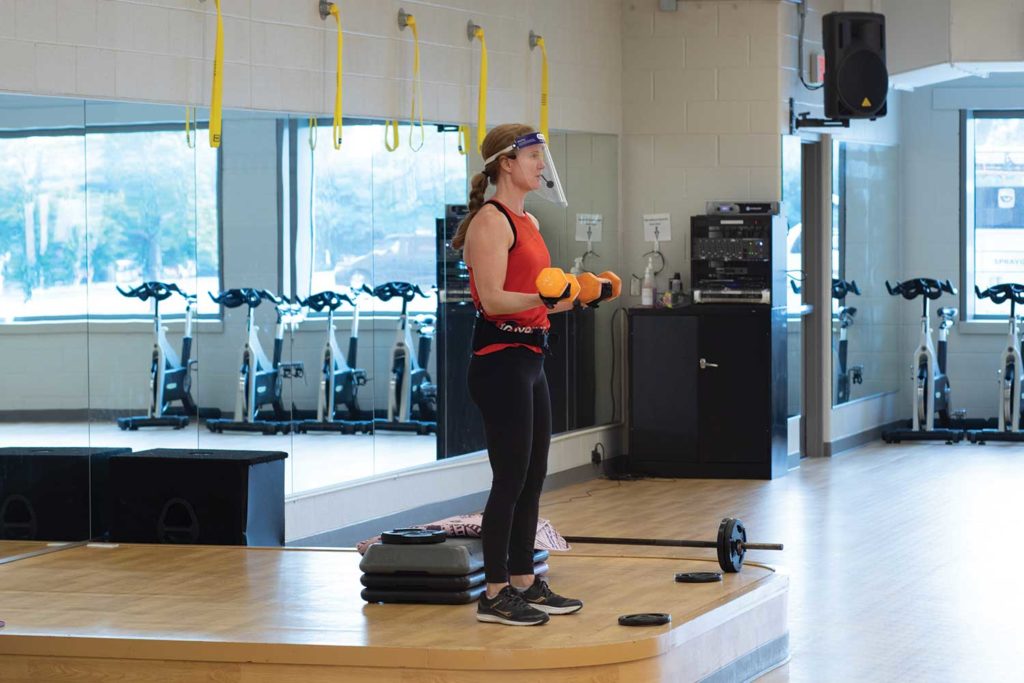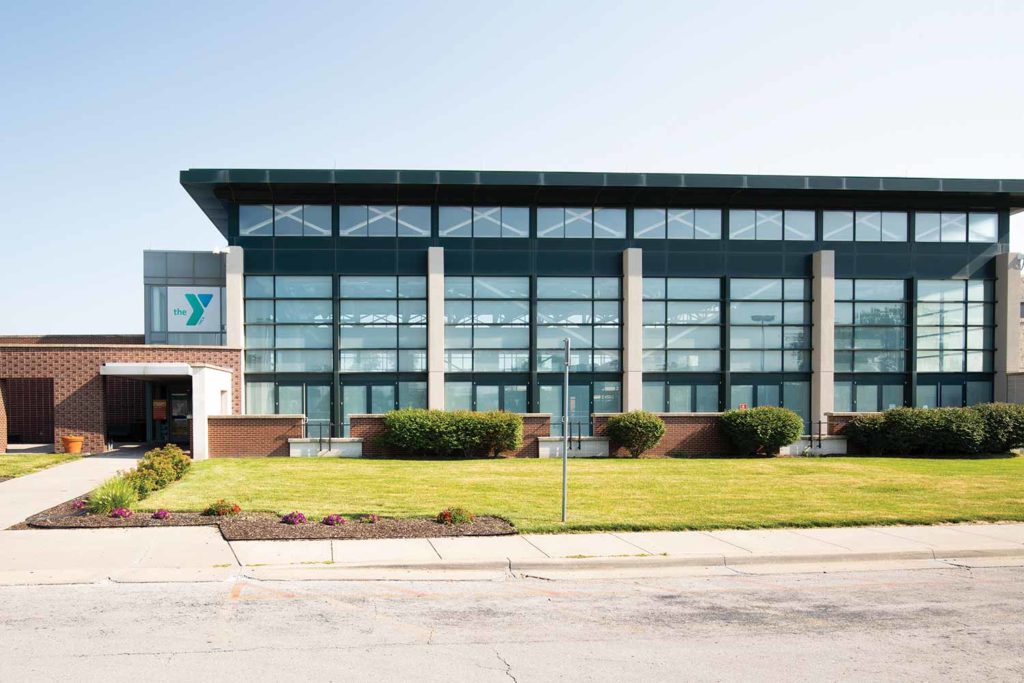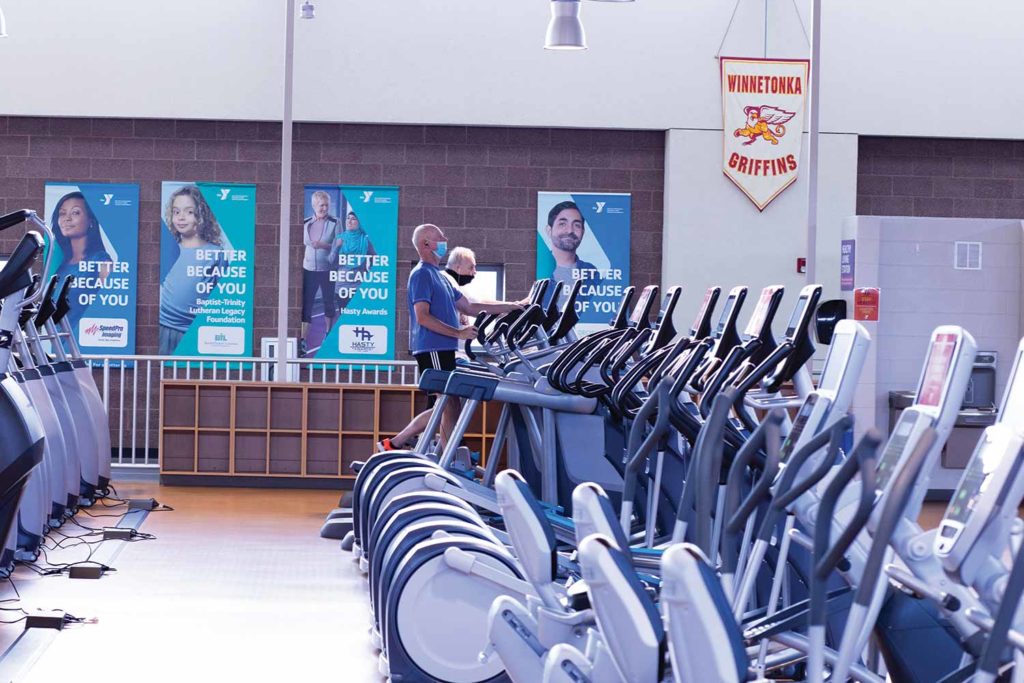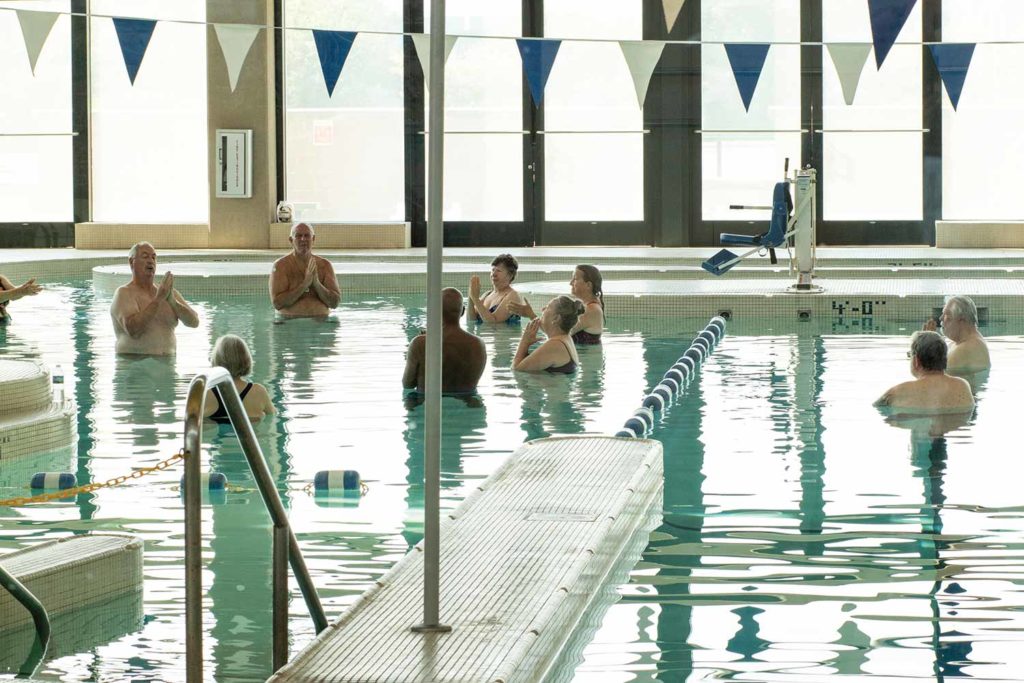What does the YMCA of Greater Kansas City have in common with the Kansas City Chiefs, Super Bowl LIV champions? Besides the fact they both reside in Kansas City, Missouri, both organizations know a thing or two about making adjustments — albeit on entirely different playing fields.
Roughly 51 minutes into the Super Bowl in February 2020, the Chiefs found themselves down 20-10 in a game in which no offensive strategy seemed to work. However, after making some big plays and adjusting to the San Francisco 49ers’ defensive play-calling, the Chiefs scored 21 straight points to become Super Bowl champions.
Since they were implemented into the organization in 1900, the Kansas City Y has relied heavily on traditional fitness offerings. After realizing several years ago the future of community health now lies in services that promote holistic wellness, the Kansas City Y is now leading the charge in achieving a sustainable medical services model for nonprofit organizations.
“We are continuing a culture of innovation, the ability to think outside our traditional ways of doing things,” said John Mikos, the president and CEO of the Kansas City Y. “It also gives us opportunities to reflect on the organization’s resilience, and then pivot based on what our communities want.”
Adjusting based on what the community needs has resulted in several medical programs in recent years, and this movement is now being led by Mikos, who was appointed president and CEO of the Y in July 2019. Driven by its success through the years and a passion for delivering the best outcomes for holistic community health, the Kansas City Y is looking to incorporate the future of wellness within its walls.
Making a Difference
Mikos knows his way around the industry, having been part of it for 30 years. But his introduction into community recreation came while school was his main focus.
While studying for his business degree, Mikos took on a part-time job at the Cleveland County YMCA in Norman, Oklahoma, that quickly turned into a full-time job managing the financial assistance program. In this role, Mikos witnessed the impact of community services.
“So here it is: I’m 21 years old, talking with single parents in their 30s or 40s, or older couples, and I’m making financial decisions that impact them,” recalled Mikos.
From these interactions with community members, Mikos saw the value of recreation and wellness services, and because of those experiences, pursued a career in community recreation.
“This was really where the rubber met the road — being able to help people and see community impact,” said Mikos. “That’s why I decided to continue to work for a nonprofit. You can directly impact the community and see what you’re doing every day is making a difference.”
Since that first job, Mikos has worked at four other YMCAs across the country, including his current position. And while his passion for holistic wellness services is driving the programming decisions at the Kansas City Y, his understanding of these programs was shaped during his time at the YMCA of Western North Carolina in Asheville, North Carolina.
Working with Paul Vest, the current president and CEO of the Western North Carolina Y, Mikos shared this role — in which he helped the association form meaningful partnerships and establish impactful wellness initiatives — shaped his view on prevention, health and wellness, and the YMCA’s role in community wellness.
“In Asheville, I started looking at prevention and what the Y can do in the area of health and wellness when aligned with the right partners,” reflected Mikos.
Since he was named president and CEO of the Kansas City Y in July 2019, Mikos has been the driving force behind his association’s continued dedication to improving community wellness.
Community Health
Medical fitness has been a major component of the Kansas City Y’s strategy for several years. In fact, back in 2017, they became the first YMCA in the country to have a licensed medical doctor on staff.
This staffing decision coincided with the construction of a medical clinic at the site of the Linwood YMCA/James B. Nutter Community Center, built through a partnership with Truman Medical Center. “We have a 7,000-square-foot facility with 12 patient rooms and four physicians in the building right next to the Y,” explained Mikos.
He also noted this clinic has been one of the most beneficial developments at the Kansas City Y in recent years, since it addresses a big community need.
“What’s great is the medical provider sits right in the core of where there are no medical services, an area with a high percentage of individuals who do not have access to healthcare or funding to be able to get healthcare services,” said Mikos.
In all its other locations, the Kansas City Y offers several wellness-focused programs, especially those that help with chronic disease and illness prevention: LIVESTRONG, a program for cancer survivors; EnhanceFitness, an evidence-based group exercise program for older adults; and weight loss management programs, to name a few.
“We’re beginning to pivot more to community health, and we’ve got some really neat things happening,” said Mikos. “We’re adapting based on what the community’s needs are.”
In addition to active older adults and patients with chronic diseases, another major focus area for the Kansas City Y is youth programs, specifically childcare.
“Ys are beginning to struggle in this area,” said Mikos. “Childcare is changing significantly, and has moved way beyond just childcare — it’s now extended out of school time. There’s now an expectation for our facilities to work with schools on actual curriculum being met surrounding science, technology, education and math. It’s beyond simply taking care of the children.”
To better understand the world of education, Mikos turned to an expert in the field. “I brought on board an individual with a doctorate in education and a PhD in education, who had been in the school systems for 25 years as a principal, superintendent and teacher,” he said. “Now we can understand the language and curriculum the school system knows.”
Armed with the knowledge it needs, the Kansas City Y is aiming to play a bigger role in the overall planning of curriculums and desired outcomes for youth, especially where virtual learning is concerned. To make sure kids have support with virtual learning so parents can go to work, the Y is working to secure space and funding to offer a “Y Learning Academy,” in which youth would receive support to complete virtual assignments and interact with peers in a controlled environment.
In addition to providing virtual resources and opportunities for social interaction, the Kansas City Y has identified another need in the community: food security.
“We work in a lot of communities where needs are hard to see,” said Steve Scraggs, the senior vice president of youth development at the Kansas City Y. “When kids show up to school, they have clean clothes and nice shoes, and things seem OK. But what we’ve run into is parents are working two or three jobs to make ends meet. And when it comes to making critical decisions with your budget, the unfortunate reality is the food that’s more affordable often doesn’t provide nutritional benefit.”
To fight food insecurity in the community, the Kansas City Y offers a variety of food programs, including a food pantry, a drive-through food pantry, and several other programs aimed at helping kids get the food they need.
“We have certain days of the month where we bring all the food outside to the parking lot, almost like a drive-thru,” explained Mikos. “We load fresh fruits, vegetables and other types of food for anyone who comes through the line. We’ve even engaged our political leadership — mayors, state representatives and the city council — to be on the front lines, helping hand out some of the food.”
Pivoting
Recently, however, a nationwide shift in the insurance reimbursement model for prevention-focused wellness programs has caused the Kansas City Y to adjust its approach.
“A few years ago, working under the premise that the program methodology made sense — we’re able to have physical activity, monitor what people are eating, and also manage depression, anxiety and other illnesses — we hoped we could deliver those services under a healthcare format,” explained Mikos.
Unfortunately, the insurance reimbursement structure did not pan out the way the community recreation industry thought it would. “The problem along the way isn’t that it didn’t work — the problem is the rules changed,” said Mikos. “We were moving toward prevention, and it was working. At a certain point, prevention was no longer a priority.”
Now, organizations across the country are having to adjust. Insurance companies only want to reimburse for programs that deliver certain outcomes after a certain period of time, rather than cover preventative memberships for programs that can help mitigate chronic diseases and illnesses.
As a result, the Kansas City Y has had to pivot back to established programs they can offer that don’t rely on reimbursement to operate. According to Mikos, it’s very plausible for a nonprofit to deliver chronic disease prevention services under a non-healthcare format. “Working under the premise that the program methodology makes sense, meaning we’re able to have physical activity, monitor what people are eating, and manage depression, anxiety and other illnesses, we can still deliver those services under a non-healthcare format,” he explained.
While much of the organization’s recent focus has been on developing a sustainable model for offering preventative wellness services, the Kansas City Y will still implement programs the community needs.
“Even though we’re beginning to pivot more to community health, we haven’t abandoned the things we need to do surrounding chronic disease prevention,” said Mikos. “We’ll do it where it makes sense and where there’s tremendous need.”
One critical aspect of developing these programs and rolling them out to the community is forming partnerships in the community, especially with medical organizations, particularly with Truman Medical Center.
“There’s a natural partnership here,” said Charlie Shields, the president and CEO of Truman Medical Center. “We have a certain set of interventions we can work on and they have interventions they can work on for improving health, and the ability to combine those two and communicate it with individual patients is great.”
A major initiative for the Kansas City Y is emphasizing those sets of intervention. “One of the things we’re trying to do through our partnerships is let medical providers know we want to work with them to unburden the load they may not have time for, especially as we’re starting to discuss having mental health behavioral specialists on our team in order to partner with physician groups,” said Mikos.
In an effort to continue its work in wellness-focused services, the Kansas City Y will be opening its new Downtown YMCA and Kirk Family Community Center in December 2020 — an exciting development for the organization that has been in the works for a while.
According to Mikos, two additional focuses in the new facility will be on service industry employees and youth development. The focus on service industry employees will include specialized medical services and hours that reflect their unique schedules.
To deliver positive outcomes for its youth, the Downtown YMCA will have a charter school right next door. The curriculum will include drowning prevention and other lifesaving skills, as well as behavioral health services. Ultimately, the aim for these services is to deliver the holistic wellness experience the whole community needs.
“For a while, the Y just got viewed as another fitness center in the community,” said Shields. “But I think they’ve returned to their mission, which is about improving the quality of life and health of the community.”

Resilience
It’s no small feat to last 160 years, and the Kansas City Y has maintained a strong presence in the community through its focus on improving its quality of life. This focus is what has allowed the Y to “adapt and pivot,” according to Mikos.
A big reason the Y is able to deliver its programs so effectively is its passionate and dedicated staff. “They’re the experts in the field,” said Mikos. “They’re the boots on the ground in service delivery, they’re the ones listening to our constituents and volunteers, and we work on strategy and priorities together.”
At the core of the Kansas City Y’s adaptability is prioritizing members and offering what’s best for them. With this priority intact, Mikos and the entire organization will be prepared for any obstacles down the road, knowing how to adjust accordingly.
“Everything is about our people,” said Mikos. “There’s compassion, passion and a spirit in this community of caring for one another. Our Y is privileged to be serving a community that embraces our organization and the services we provide.”
Bobby is the former editor of Community Rec Magazine.













